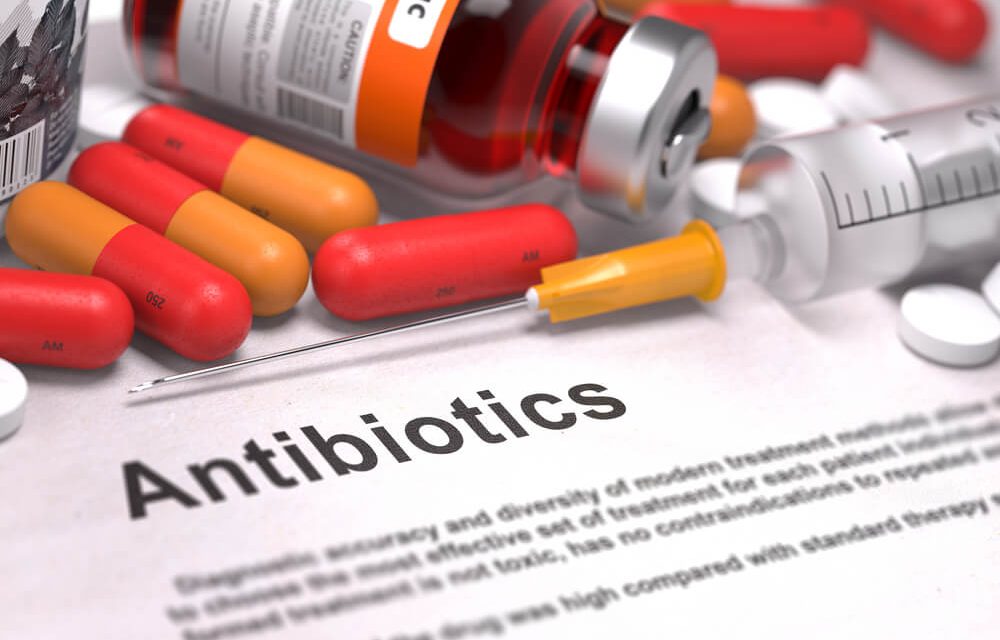10 THINGS TO DO WHEN TAKING ANTIBIOTICS January 29, 2018 – Posted in: Lifestyle – Tags: antibiotics, ginger powder
Are you aware that your microbiome will take a hit and may be permanently altered by taking antibiotics? You may have voiced your desire to avoid antibiotics and queried your doctor about whether they are absolutely necessary, but the final verdict is that a course of antibiotics is definitely warranted. So, you have no choice but to take them. Luckily for you : Dr Robynne Chutkan, who is one of today’s preeminent gastroenterologists, has shared ten tips in her book entitled “The Microbiome Solution” to help us minimise microbial loss and encourage rapid growth during and after taking a course of antibiotics. Here’re the ten tips:
- Take a Probiotic Suppplement
Take a probiotic supplement during and after antibiotics. Several studies have shown the usefulness of probiotics in decreasing side effects such as antibiotic-associated diarrhoea and Clostridium difficile, as well as repopulating the gut.
When to take? According to Dr Ronynne Chutkan, for example, if you are taking the antibiotic twice daily at 8am and 8pm, you should take the probiotic supplement at 2pm. You should continue the probiotic for at least a month after finishing the course of antibiotics.
She recommended to pick a probiotic supplement with at least fifty billion CFU of the most important groups of probiotic bacteria : Lactobacilli and Bifidobacteria. Most robust probiotics contain at least seven different strains.
- Request a Narrow Spectrum Antibiotic
Taking a narrow spectrum antibiotic will minimise the damage to your microbiome as it targets a narrower range of bacteria.
- Eat Prebiotic Food
Prebiotic food is high in fibre and resistant starch, which is found in green banana, green banana flour, green peas, lentils, uncooked rolled oats, white cannellini beans. Not only do they provide food for your microbes, they also help to promote species diversity, which can decrease dramatically after a course of antibiotics. Fermented food such as sauerkraut and kimchi can feed your gut bacteria, as well as provide live microbes at the same time.
Like resistant starches, inulin also has prebiotic qualities. Foods high in Inulin are artichokes, asparagus, bananas, chicory root, dandelion root, garlic, leeks, and onion.
- Eliminate Sugary and Starchy Food
Food and drinks high in sugar and starchy food that are broken down into simple sugars in the gut will send the yeast species in a feeding frenzy and further contribute to the microbiome unbalance induced by antibiotics. Eliminate them totally.
- Eat Yeast-Fighting Food
Antibiotics are the main cause of yeast overgrowth, which can cause vaginal infections and many other symptoms. Eat onion, garlic, seaweed, swede, pumpkin seeds and coconut oil, which have significant anti-yeast properties.
- Drink Ginger Tea
Ginger has a soothing effect on the digestive system and can help to reduce gas and bloating associated with taking antibiotics. For best results, peel a 2.5cm piece of fresh ginger root, cut it into small pieces and place in a teapot. Add two cups of boiling water and wait for twenty to thirty minutes before drinking.
On days when you simply are in a rush, grab this probiotic-infused ginger powder and consume it in your own short-cut ways : drink it with hot water, sprinkle over your salad, soup, Asian stir-fried food or even your favourite desserts.
- Use Bentonite Clay
Use one tablespoon of bentonite clay one to two times daily until symptoms of antibiotic-associated diarrhoea are alleviated. Be sure to separate the clay from the antibiotic and probiotic doses to avoid binding them and thus reducing their efficacy. Stop using clay if constipation develops.
- Make Mushroom Tea
Shiitake and maitake mushrooms have significant immune-boosting properties and antifungal effects. Chop two dried mushroom caps into small pieces. Put them into a pot of water and bring to a boil to make about four cups. Reduce heat, cover and simmer for about thirty minutes. You can drink this mushroom tea daily while you are taking antibiotics.
- Support Your Liver
Antibiotics are broken down in the liver, so it’s important to keep your liver in healthy condition to avoid liver damage. Dark leafy vegetables such as kale, spinach, and cabbage, as well as broccoli, beetroot, and artichokes, can help keep the liver healthy and promote the production of healthy bile. Alcohol must be avoided while on antibiotics as it increases the likelihood of liver toxicity.
- Skip the Acid Suppression
When taking antibiotics, stop any acid suppressing drugs seventy-two hours beforehand to allow levels of stomach acid to return to normal. If not, the lack of stomach acid will leave you vulnerable to overgrowth of pathogenic bacteria such as Clostridium difficile.

